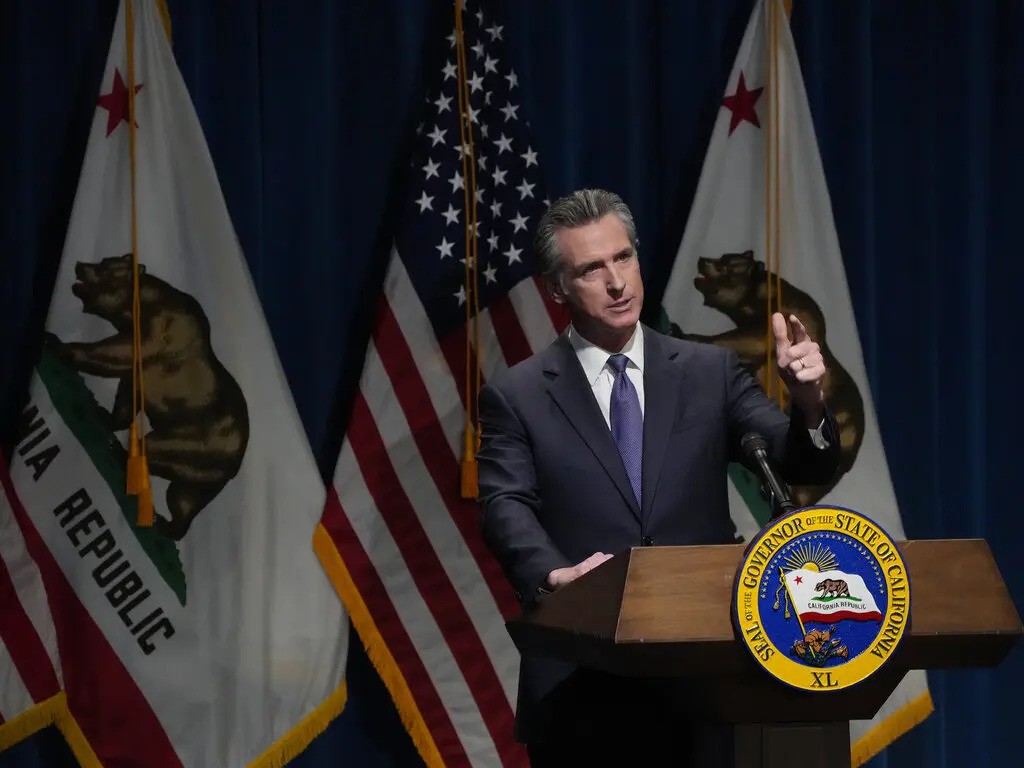California Governor Gavin Newsom’s recently signed laws regulating AI-generated “deepfake” election content are already facing significant legal challenges. Just days after their enactment, a federal lawsuit has been filed in the U.S. District Court for the Eastern District of California, contesting two of the three new laws. These regulations aim to control deceptive AI content and mandate the removal of misleading material from social media platforms.
New Laws Under Fire
The legal challenge was brought forward by a conservative social media user, @MrReaganUSA, who had posted an AI-generated parody of a Kamala Harris campaign ad. The video went viral after Newsom signed the new legislation into law. The Hamilton Lincoln Law Institute, a public interest law firm representing @MrReaganUSA, criticized the legislation, stating it could stifle political commentary.
“This chills free speech, particularly for political commentators like Mr. Reagan, who use satire to critique public figures and rely on social media viewership for their livelihood,” the law institute said in a press release.
Free Speech Versus Misinformation
The controversial legislation requires that satirical or parody content either be labeled as altered or be removed. Newsom’s office clarified that the laws will not ban memes or parodies but will enforce clear disclaimers on altered content. One of the new laws exempts “Materially deceptive content that constitutes satire or parody.” However, Theodore Frank, attorney for @MrReaganUSA, voiced concerns that the new laws impose unrealistic demands on social media platforms.

“There’s a provision that allows lawsuits against the makers of the videos, if, unless there are these really burdensome disclosure requirements that basically require you to use the entire screen to have the disclosure and requires them to take down years of videos and spend hours on hours re-cutting them with the disclosure requirements and then having a disclosure that’s louder than the video itself, and that takes away the entire comedic event,” Frank added.
He also warned that platforms might resort to banning accounts rather than implementing complex content monitoring systems. According to Frank, social media companies may not invest in determining whether content qualifies as parody.
Legal Ramifications of AI-Generated Content
One of the key provisions in the legislation makes it illegal to create and distribute deepfakes during election periods, specifically ahead of Election Day and for 60 days thereafter. The laws also allow courts to impose civil penalties and halt the distribution of such content.
The lawsuit is already drawing national attention, as similar legislation exists in other states. Frank indicated that lawsuits could be forthcoming in states like Alabama, which also regulate AI-generated election content.
“I don’t think Republicans are immune to over-legislating in this area, but there are certainly other states that are doing this,” Frank stated.
California Defends Its Laws
In a statement to Fox News Digital, Newsom spokesperson Izzy Gardon emphasized that the laws are aimed at reducing election misinformation and protecting the integrity of the democratic process. Gardon pointed out that the original post by @MrReaganUSA had already labeled the content as a parody, suggesting the lawsuit is unnecessary.
“The person who created this misleading deepfake in the middle of an election already labeled the post as a parody on X,” Gardon said.
“Requiring them to use the word ‘parody’ on the actual video avoids further misleading the public as the video is shared across the platform.”
Gardon added, “We’re proud California did expand the law to also include misinformation about election workers for two months after an election — so that malicious actors don’t attempt to disrupt the democratic process..”
A National Debate on AI and Misinformation
As concerns over AI-generated deepfakes grow, lawmakers across the country are exploring ways to regulate this evolving technology. Governor Newsom has been vocal in his opposition to such content, especially in the context of elections. After Elon Musk reposted the altered Kamala Harris ad, Newsom condemned it, saying in July, “Manipulating a voice in an ‘ad’ like this one should be illegal. I’ll be signing a bill in a matter of weeks to make sure it is.”
With the legal challenge now underway, the nation will be watching closely as California’s groundbreaking AI deepfake laws face their first major test in federal court.



